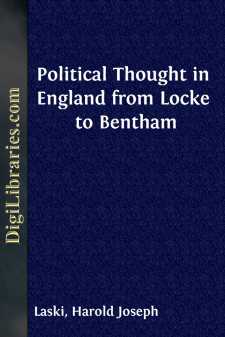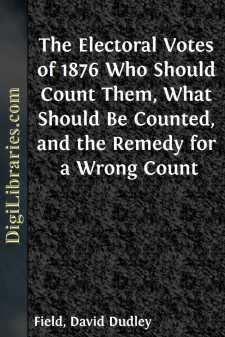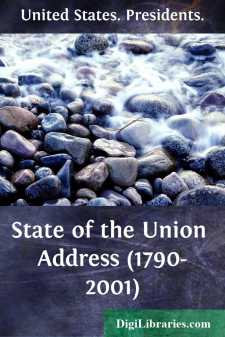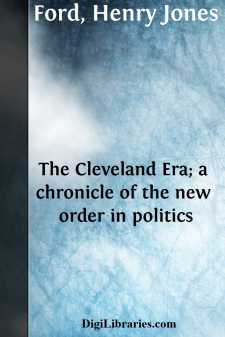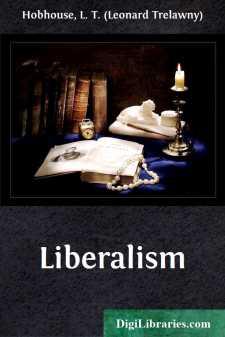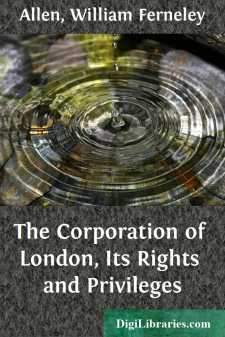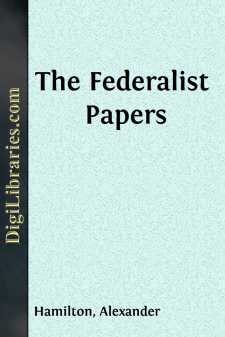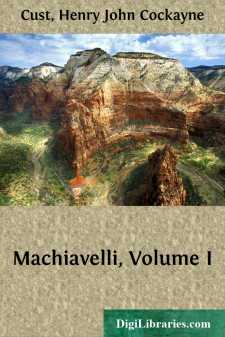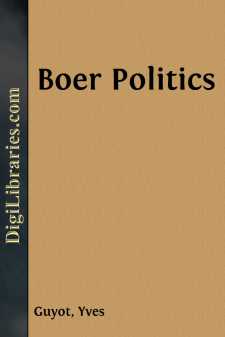Political Science
Political Science Books
Sort by:
CHAPTER I INTRODUCTION The eighteenth century may be said to begin with the Revolution of 1688; for, with its completion, the dogma of Divine Right disappeared for ever from English politics. Its place was but partially filled until Hume and Burke supplied the outlines of a new philosophy. For the observer of this age can hardly fail, as he notes its relative barrenness of abstract ideas, to be...
more...
Who should Count them,What should be Counted, andThe Remedy for a Wrong Count. The electoral votes of 1876 have been cast. The certificates are now in Washington, or on their way thither, to be kept by the President of the Senate until their seals are broken in February. The certificates and the votes of thirty-four of the States are undisputed. The remaining four are debatable, and questions...
more...
by:
Walter Bagehot
There is a great difficulty in the way of a writer who attempts to sketch a living Constitution—a Constitution that is in actual work and power. The difficulty is that the object is in constant change. An historical writer does not feel this difficulty: he deals only with the past; he can say definitely, the Constitution worked in such and such a manner in the year at which he begins, and in a manner...
more...
Fellow-Citizens of the Senate and House of Representatives: I embrace with great satisfaction the opportunity which now presents itself of congratulating you on the present favorable prospects of our public affairs. The recent accession of the important state of North Carolina to the Constitution of the United States (of which official information has been received), the rising credit and...
more...
by:
Henry Jones Ford
CHAPTER I. A TRANSITION PERIOD Politicians at Washington very generally failed to realize that the advent of President Hayes marked the dismissal of the issues of war and reconstruction. They regarded as an episode what turned out to be the close of an era. They saw, indeed, that public interest in the old issues had waned, but they were confident that this lack of interest was transient. They admitted...
more...
BEFORE LIBERALISM The modern State is the distinctive product of a unique civilization. But it is a product which is still in the making, and a part of the process is a struggle between new and old principles of social order. To understand the new, which is our main purpose, we must first cast a glance at the old. We must understand what the social structure was, which—mainly, as I shall show, under...
more...
The first historical notice of the City of London occurs in that portion of the Annals of Tacitus which treats of the insurrection of Boadicea. At that time it was a place much frequented by merchants, attracted partly by the natural advantages of the site, and partly by the vicinity of the Roman camp at Islington. It is stated that 70,000 persons, of both sexes and of all ages, were massacred by that...
more...
FEDERALIST No. 1. General Introduction For the Independent Journal. Saturday, October 27, 1787HAMILTONTo the People of the State of New York: AFTER an unequivocal experience of the inefficacy of the subsisting federal government, you are called upon to deliberate on a new Constitution for the United States of America. The subject speaks its own importance; comprehending in its consequences nothing less...
more...
INTRODUCTION The Life of a Day. ' am at my farm; and, since my last misfortunes, have not been in Florence twenty days. I spent September in snaring thrushes; but at the end of the month, even this rather tiresome sport failed me. I rise with the sun, and go into a wood of mine that is being cut, where I remain two hours inspecting the work of the previous day and conversing with the woodcutters,...
more...
by:
Yves Guyot
INTRODUCTION. A word in explanation of this English edition is perhaps not unnecessary. It will be remembered that the arguments in the following pages appeared originally in the columns of Le Siècle, and from the correspondence between M. Yves Guyot and Dr. Kuyper and M. Brunetière (Appendix B), the reader will understand how the publication of Le Siècle articles in pamphlet form arose. In the...
more...


